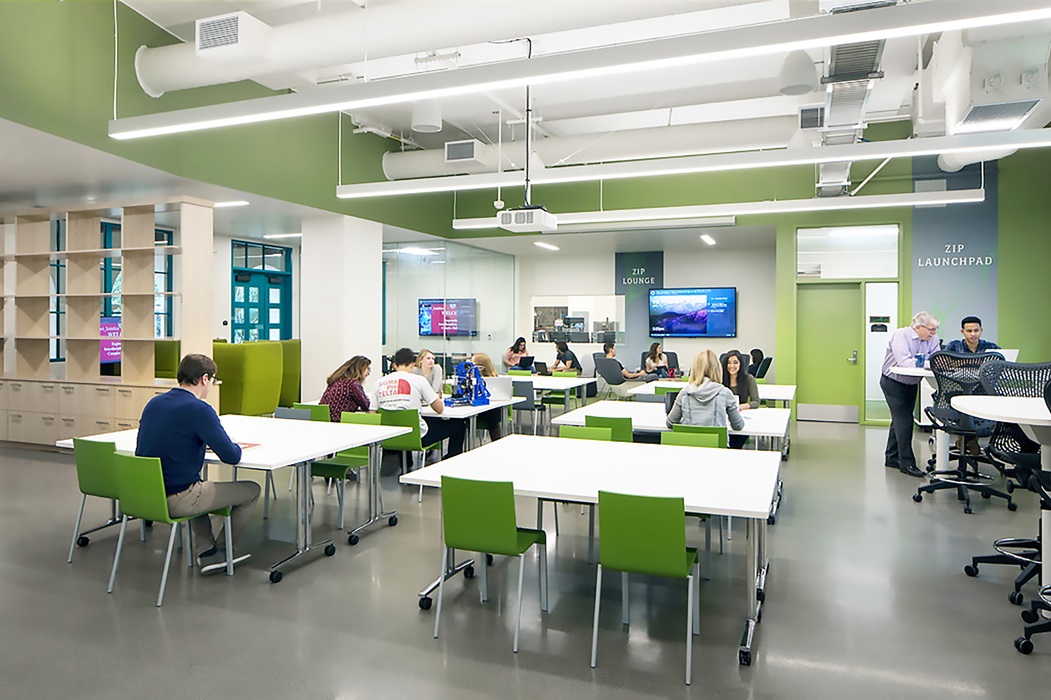By providing students with mentorship, funding for competitions, an incubator, a prototyping lab and intense experiential learning, SDSU’s dynamic entrepreneurship programs are teaching student entrepreneurs how to build, scale and sustain startup businesses in order to support and grow the San Diego region.

San Diego State University is not only the oldest and largest university in San Diego, it is also the most entrepreneurial. Just ask U.S. News & World Report, which in 2019 ranked SDSU’s entrepreneurship program as among the best in the nation. Spearheading that award-winning program are the two entrepreneurship centers housed within the SDSU William E. Leonhard Entrepreneurship Center.
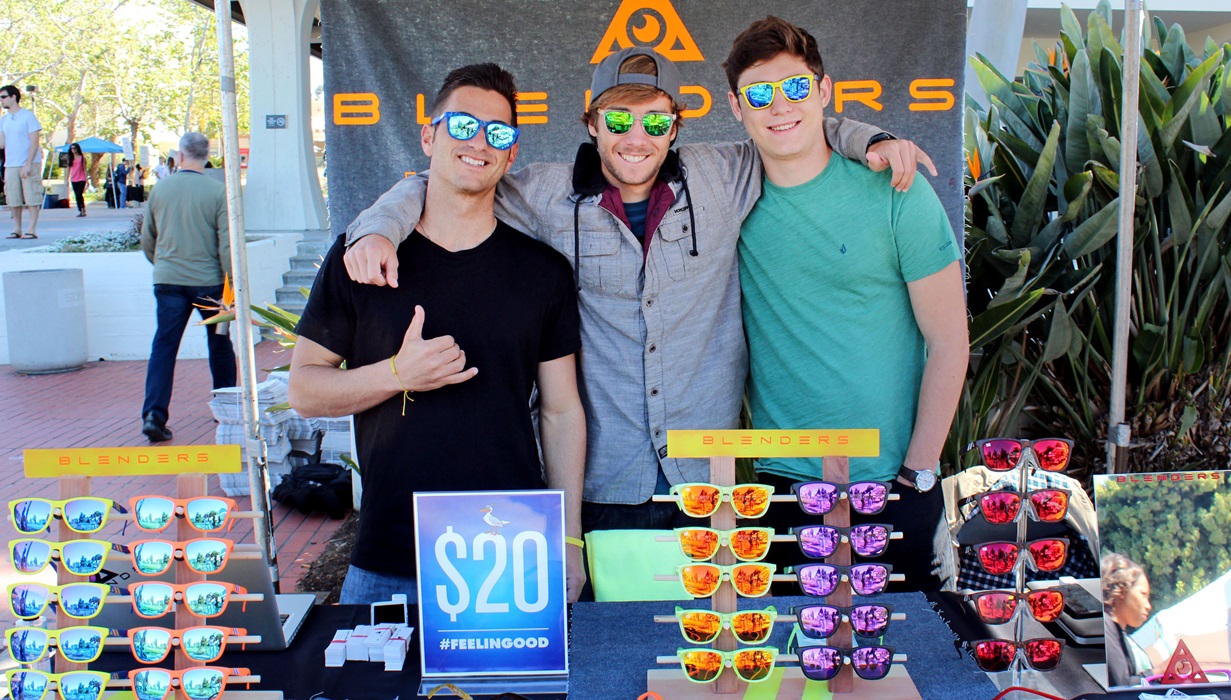
Through the collaboration of the Lavin Entrepreneurship Center and the Zahn Innovation Platform (ZIP) Launchpad, students are supplied with the education and startup experience required to become a successful entrepreneur.
While the Lavin Center focuses its efforts on teaching students through academic and experiential programs, the ZIP Launchpad incubator is where campus innovators work through their prototypes and business models to turn their startups into real businesses.
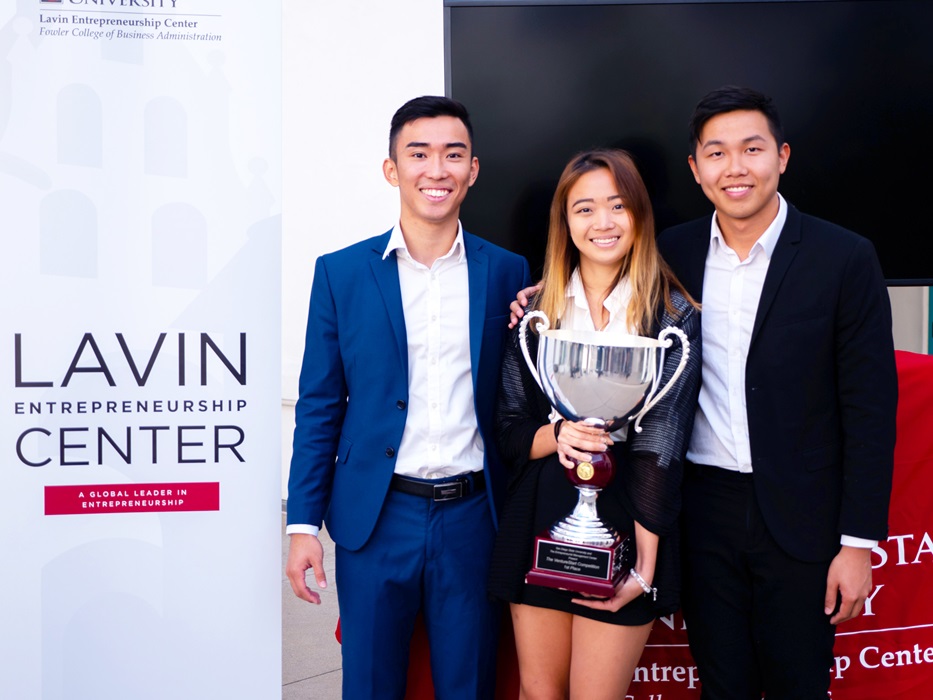
Collectively, they offer a wide array of programs to engage students from across the campus.
SDSU’s Entrepreneurship Center is located in the university’s new Engineering and Interdisciplinary Sciences building — an 85,000 square-foot facility with 17 labs and research rooms. It is specifically designed to foster collaboration, creativity and innovation among the entire school community.
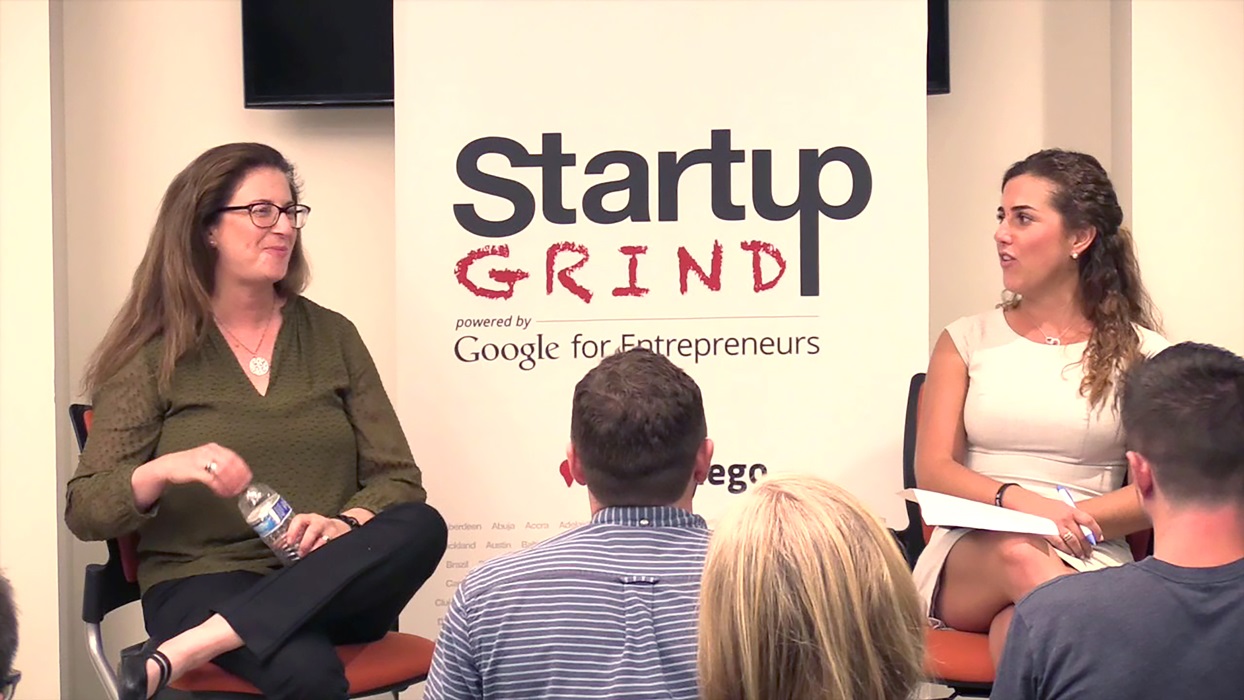
Students admitted into programs through the Lavin Entrepreneurship Center and ZIP Launchpad are offered an abundance of startup resources. These include: up to $10,000 in seed funding, 24-hour co-working space, legal, accounting, financial modeling and other domain expert support, mentoring, and software and engineering prototype assistance, including access to the HG Fenton Company rapid prototyping lab for software and hardware prototyping support.
, 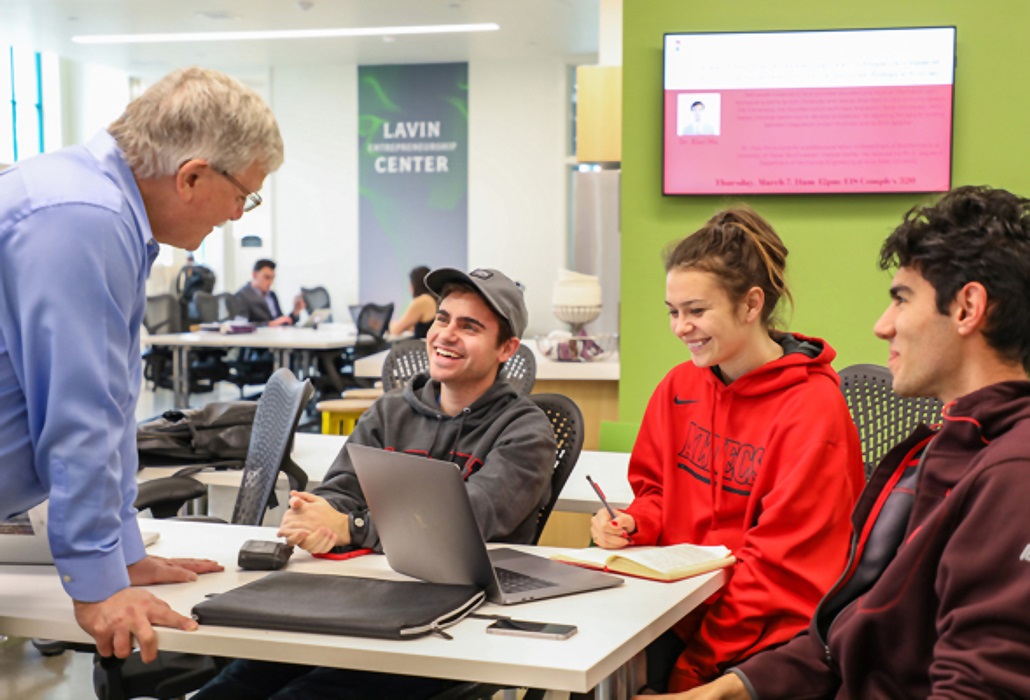
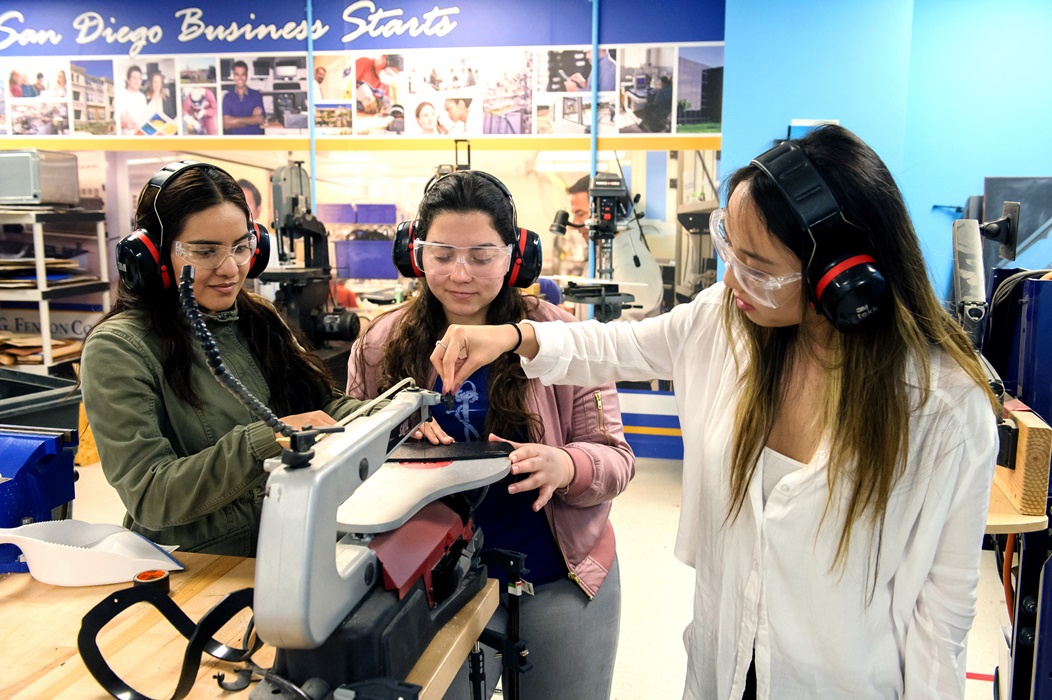
Students admitted into the program learn how to develop their entrepreneurship competencies, cultivate professional networks, utilize mentors, evaluate trends and marshal lean resources to launch and build new ventures. This also includes introductions to investors and access to funding resources. One of the sources of funds available to student entrepreneurs is the SDSU Aztec Cooperative Fund (ACF).
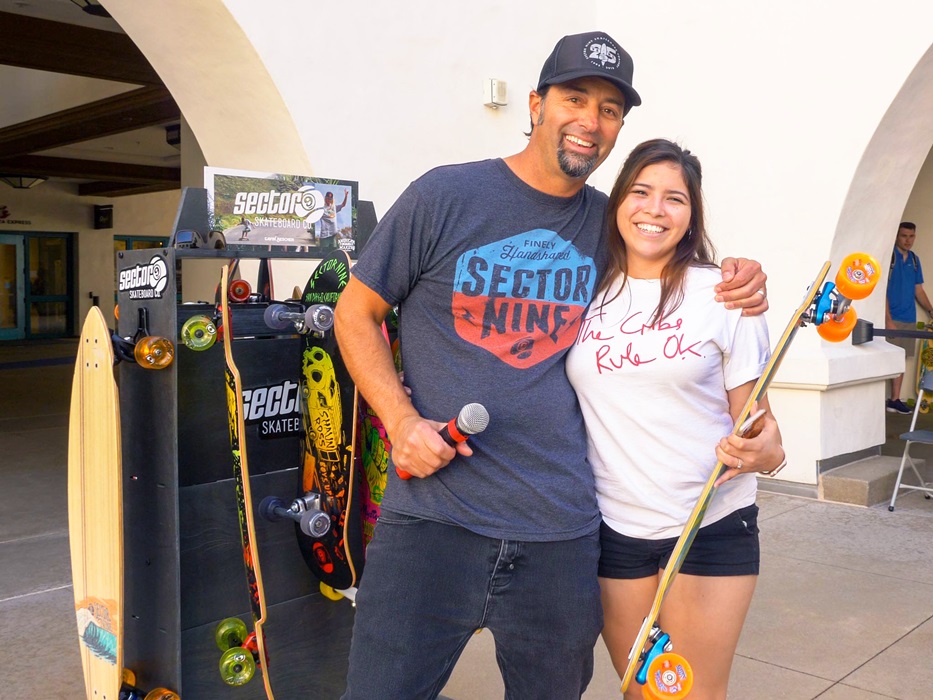
With funds from the ACF, a startup team in the ZIP Launchpad can hire fellow students from other disciplines to complete a 70-hour, paid internship to help with the growth of their business. CourseKey founder and CEO Luke Sophinos is a prime example of a startup that benefited from both the Lavin Entrepreneurship Center and the ZIP Launchpad.
After joining the Lavin Entrepreneur Program, he tapped into the well of entrepreneurship knowledge supplied to him and set out to design a way to help students remain engaged in large classes and lectures.
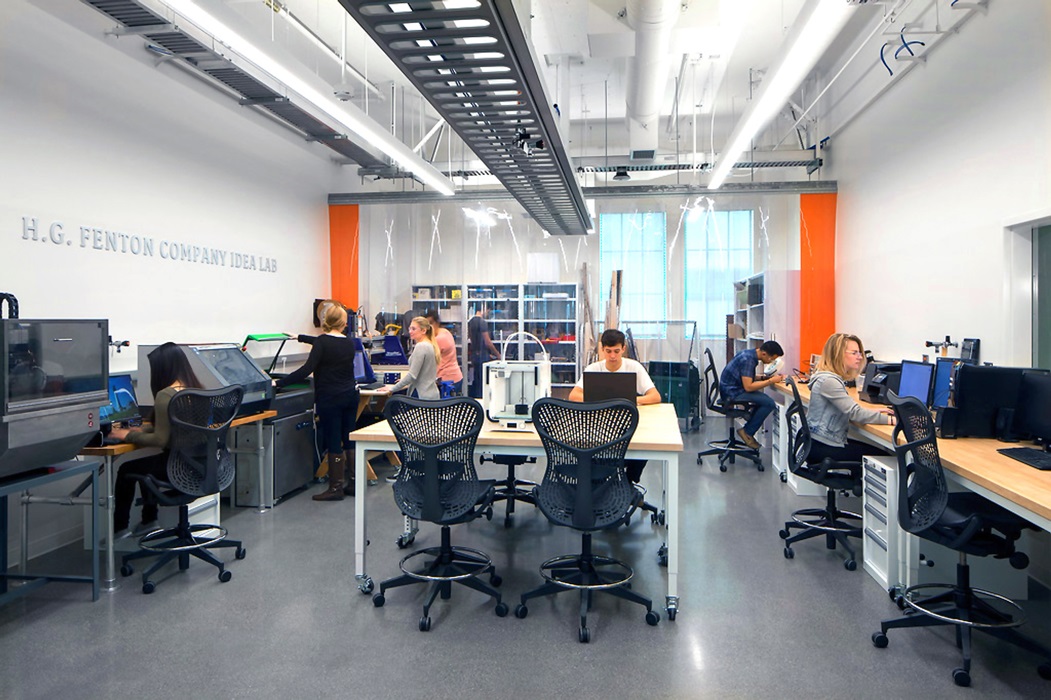
Sophinos joined the ZIP Launchpad incubator with an early stage idea. There, he was exposed to beneficial community connections, expert advice, and the resources he needed to develop his software platform, secure funding, build his team and bring his idea to life.
Since launching the company, CourseKey has raised $9 million in multiple funding rounds.
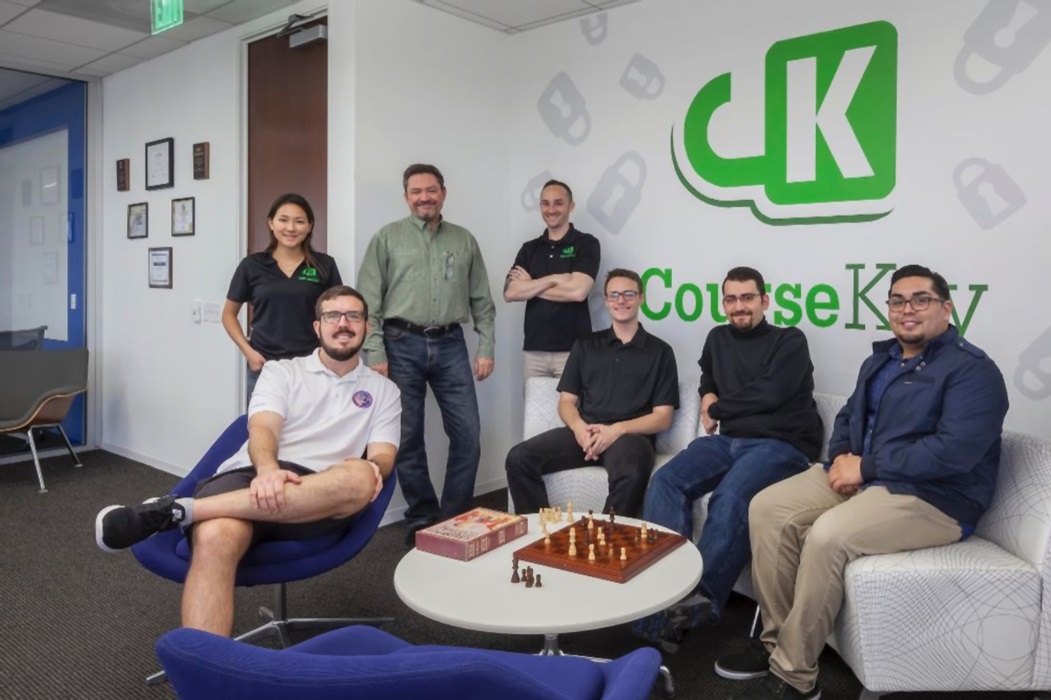
CourseKey is one of more than 260 entrepreneurship teams that the ZIP Launchpad incubator has assisted, and is one of 26 companies that the incubator has helped launch. Others include Bold Brew, SoulMuch, Shredlights and Restoar. Each of these companies have benefited greatly by leveraging the support and guidance provided by the Lavin Entrepreneurship Center and ZIP Launchpad.
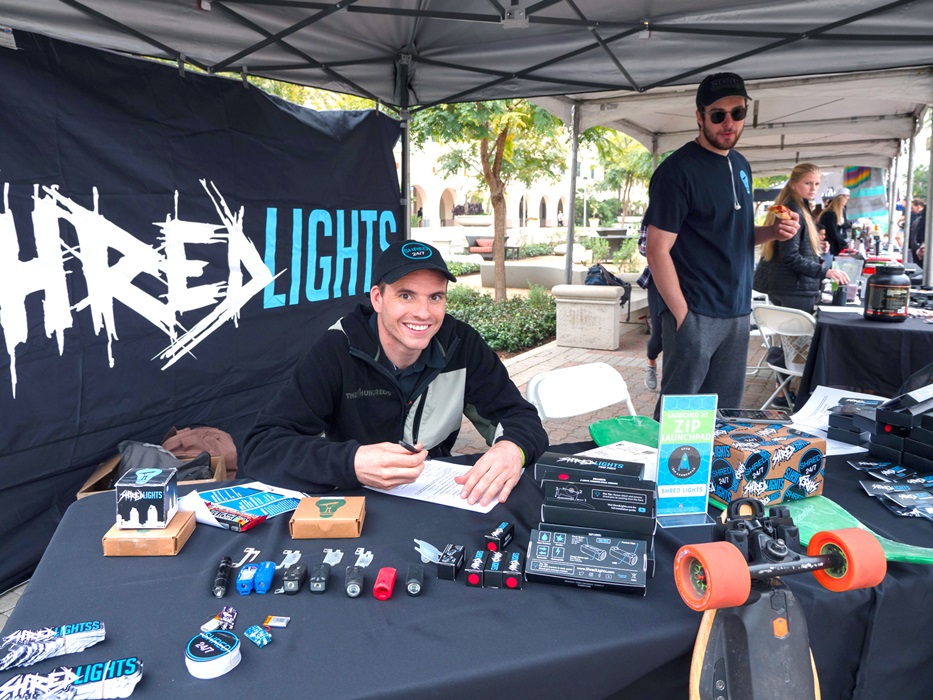
The SDSU-based startup companies have collectively raised $15 million in funding. By fostering the next generation of entrepreneurs, the SDSU Entrepreneurship Center aims to launch startups, create jobs and impact the San Diego community and region.
